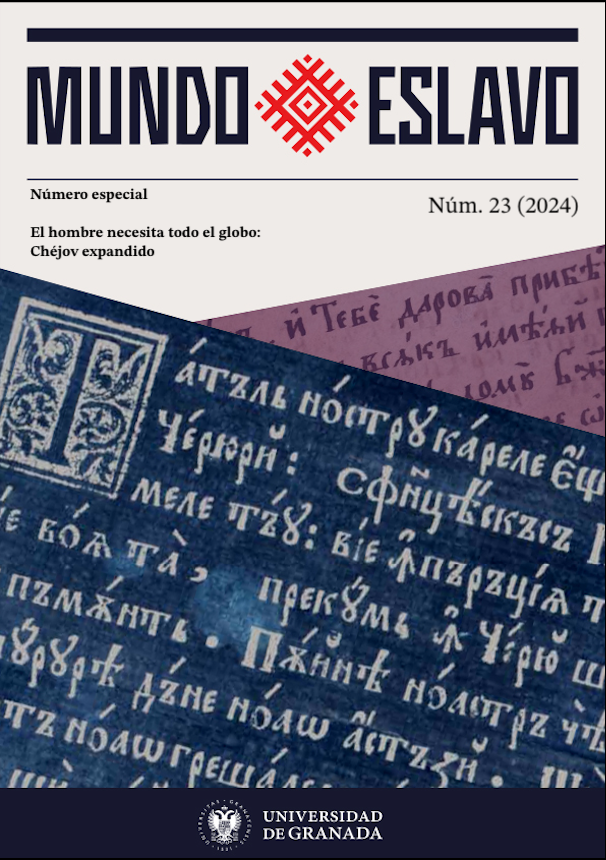Camino a la ciudad doliente, de la Praga terrenal al inframundo: visiones de Dante en Oraciones en espiral de Daniela Hodrová
DOI:
https://doi.org/10.30827/meslav.23.28838Abstract
This article is a comparative study of the novel Točité věty by the Czech postmodernist writer Daniela Hodrová and the Divine Comedy by Dante Alighieri. The main aim of the study is to establish the similarities between the two and to study the existence of a new orb: the underworld. The work has focused on the study of the structure of both works, their characters and motifs. A fundamental piece for the analysis has been the use of the spiral, both ascending and descending, in the construction of the story through different planes that conform and at the same mirror reality.
Downloads
Downloads
Published
How to Cite
Issue
Section
License
Copyright (c) 2024 Mundo Eslavo

This work is licensed under a Creative Commons Attribution-NonCommercial-ShareAlike 4.0 International License.

CC BY-SA: This license allows reusers to distribute, remix, adapt, and build upon the material in any medium or format, so long as attribution is given to the creator. The license allows for commercial use. If you remix, adapt, or build upon the material, you must license the modified material under identical terms.
CC BY-SA includes the following elements:
BY ![]() – Credit must be given to the creator
– Credit must be given to the creator
SA ![]() – Adaptations must be shared under the same terms
– Adaptations must be shared under the same terms
Authors who publish with this journal agree to the following terms:
1. Authors retain copyright and grant the journal right of first publication with the work simultaneously licensed under a Creative Commons Attribution License that allows others to share the work with an acknowledgement of the work's authorship and initial publication in this journal.
2. Authors are able to enter into separate, additional contractual arrangements for the non-exclusive distribution of the journal's published version of the work (e.g., post it to an institutional repository or publish it in a book), with an acknowledgement of its initial publication in this journal.
3. Authors are permitted and encouraged to post their work online (e.g., in institutional repositories or on their website) prior to and during the submission process, as it can lead to productive exchanges, as well as earlier and greater citation of published work (See The Effect of Open Access).













